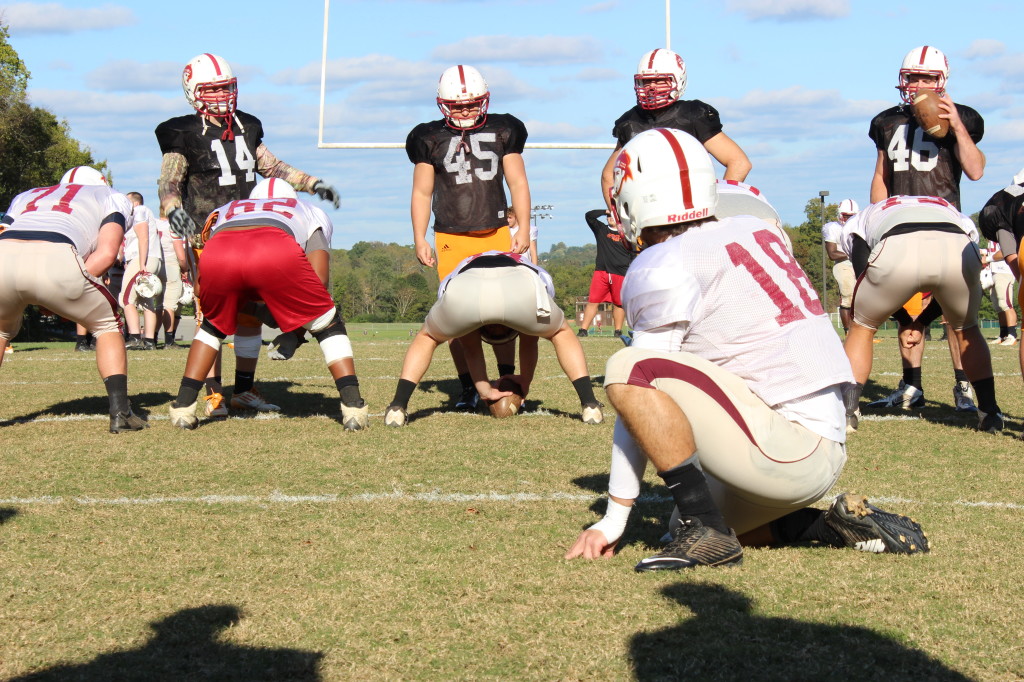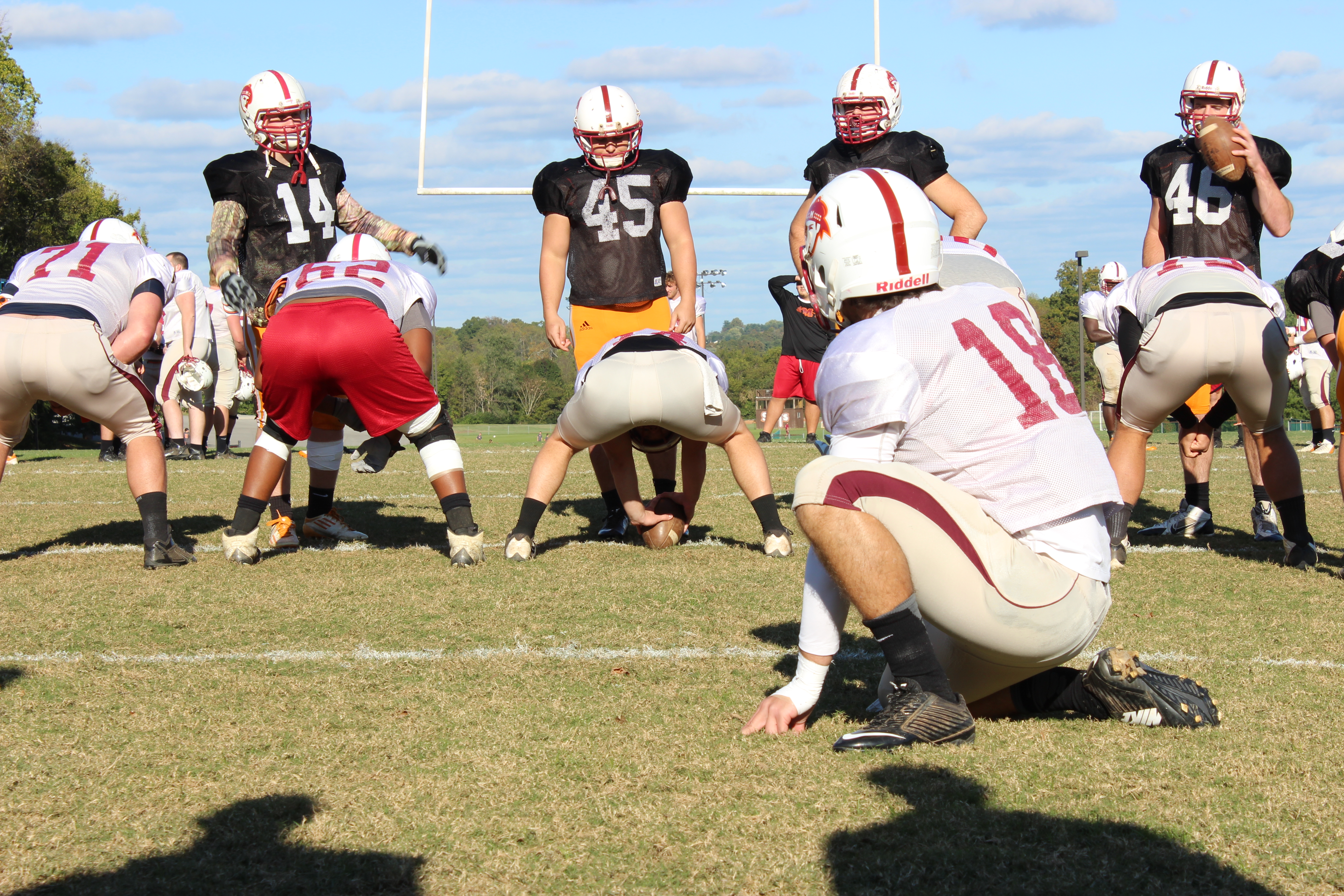The snap and hold: an unnoticed exchange

It is fair to say that the success of the Fighting Scots football team is well known in the MC community, and rightly so; The Scots are 5-2 overall this season and 4-1 in the USA South, tying them with Methodist for second place in the conference with just three games left in the season. The Scots have defeated their opponents by an average margin of victory of 23.2 points per game and are literally running over their opponents for 290 rushing yards per game.
It is less fair to claim that the MC community is aware that among all of their players, kicker Wesley Bloeme has scored the third most points for the Scots. His 44 points on the season stand only behind quarterback Evan Pittenger (84) and running back Trenton Shuler (54). Bloeme has knocked through seven of nine field goals this season and 23 extra point attempts.
When the field goal team goes into the game to convert a potential game-winning three point attempt, all eyes are on Bloeme. What many fans do not realize is that around every good kicker are ten other players that have jobs vital to the squad’s success. Among these players that pave the way to the kicker’s success, the place kick holder and the long snapper are perhaps the most vital in putting the kick through the uprights, but not always the most praised by fans.
For the MC Scots football team, these positions are filled by juniors Brady Brown and Mickey Chait. Chait is the first-string long snapper for the Scots, and Brown is the place kick holder. Backing up Chait at long snapper is sophomore Nick Starkey.
While Brown and Chait also play other positions, the practice regime of these specialist positions somewhat differs from other players’ schedules.
“We usually start practice with PATs (point after touchdown), and I hold roughly twenty to twenty-five snaps,” Brown said.
“We start out with stretches and conditioning, then anything the coaches need, like moving equipment around, and end with making sure we better ourselves every rep to make sure we don’t get yelled at,” Starkey said.
With the tendency of lessened competition at these less-glorified positions, the opportunity to make the traveling squad was a common incentive for these three athletes to start playing special teams.
“I started holding when I got moved from quarter back to defensive back, and I wanted to make the bus, honestly,” Brown said.
Chait also saw special teams as a way to travel with the team to away games.
“When I arrived at Maryville College there were six other quarterbacks who were all probably better than me, but the jury is still out on that one,” he said. “I had snapped in high school, so I gave it a shot.”
Starkey began long snapping for another reason:
“As I grew up, the gentleman playing football got bigger and stronger, and I myself was not on that squad, so I had to find a new position on my own. Perfecting the long snapping craft took many hours of work, but it was all worth it, and maybe it will pay off someday.”
As much as these three players kid around about their jobs, they realize the importance of what they do.
“My position does have its relevance towards the end of the game, when every point counts,” Brown said.
“I believe the long snapping position is very valuable,” Chait said. “Throughout the course of the game you have about ten or twelve opportunities to get on the field, and during that time, if you mess up it can affect the outcome of the game.”
Despite the importance of these positions, each of the players felt that their duties go unnoticed.
“The fans don’t really see the positions of holding and long snapping as true positions on the field,” Brown said. “They believe the coaches just throw out a couple of goons that don’t really have an athletic ability to perform those tasks.”
Although many do not recognize these specialists, all three would like fans to realize the importance of the holder and long snapping positions.
“Our positions actually take a lot of hand-eye coordination and nerves of steel,” Brown said. “Many times the game is in our hands.”
Chait and Starkey both noted that they don’t expect glorification from the fans, but instead want recognition and appreciation of the “working parts” behind successful field goal attempts.
“The most important thing for the fans is to cheer us on with the rest of the team… and make sure we get a flower at the end of our senior season, but don’t look at me because it makes me nervous,” Starkey said.
The Scots will finish their season with three tough conference matchups, the next being against North Carolina Wesleyan College on Saturday, Nov. 1.

